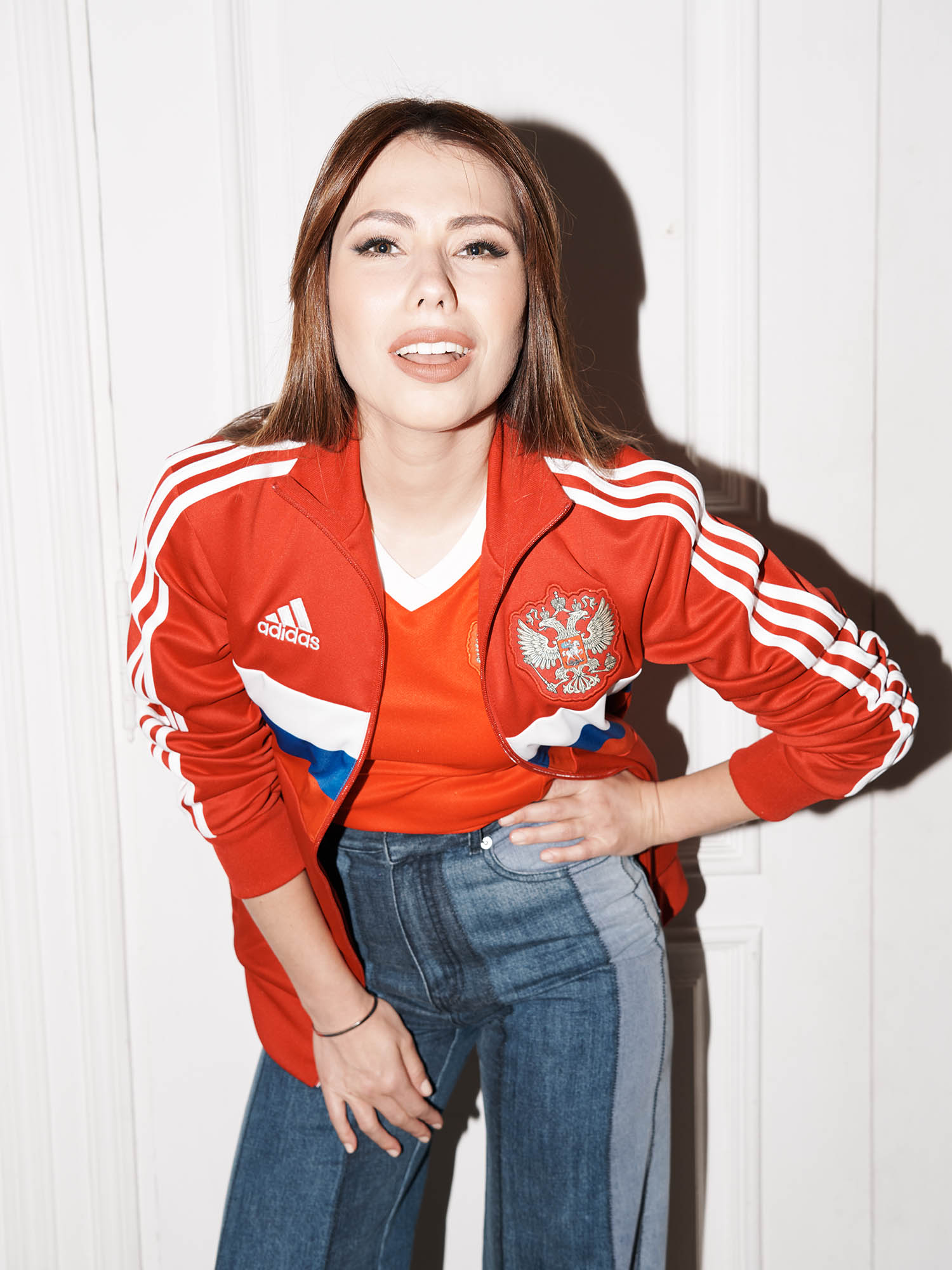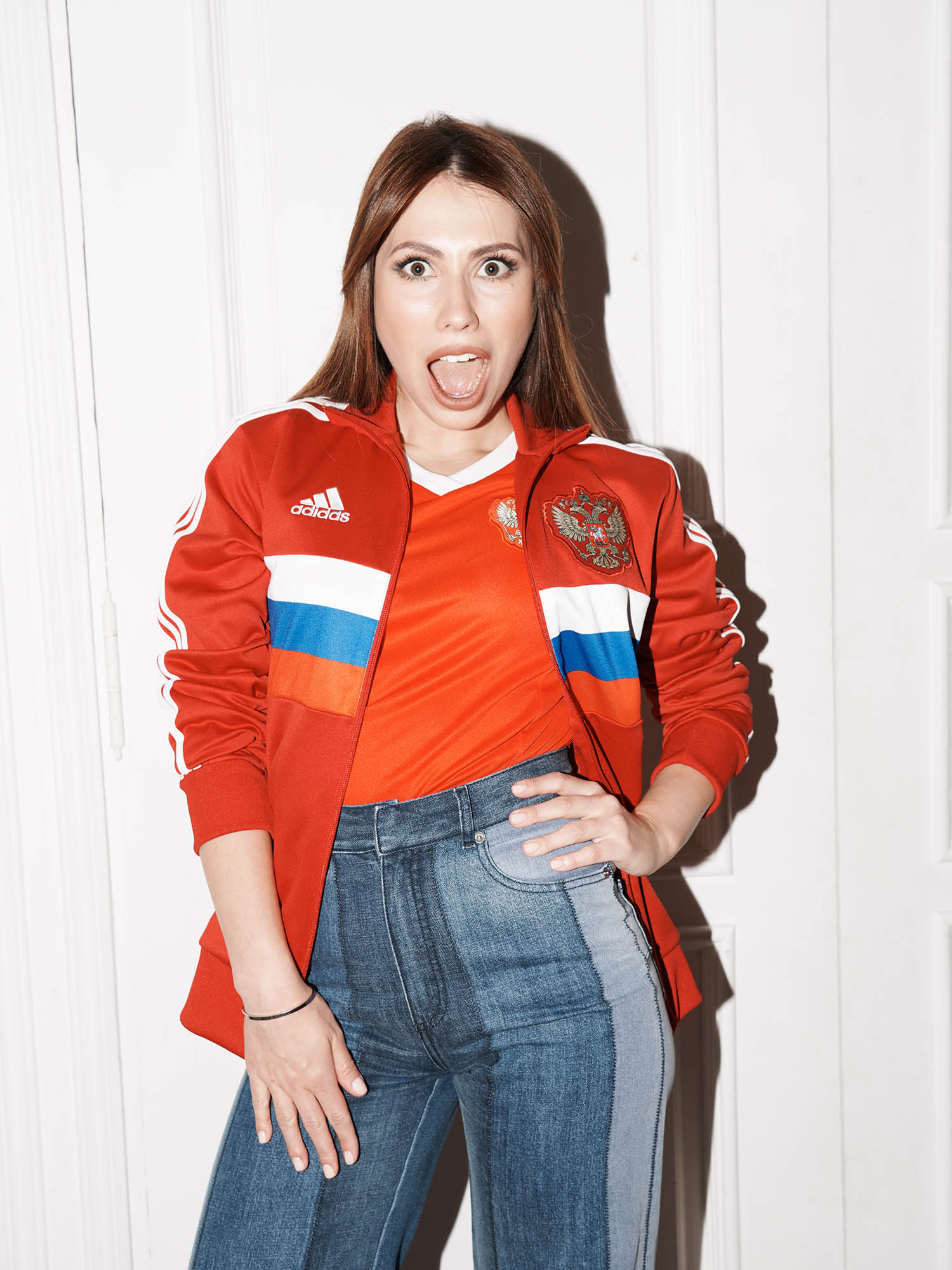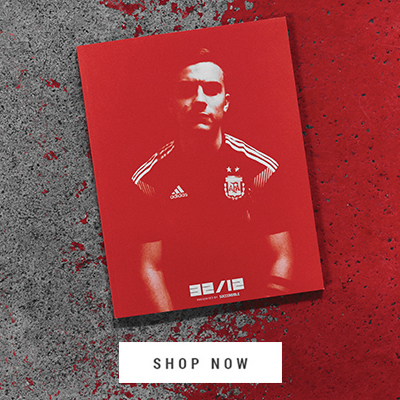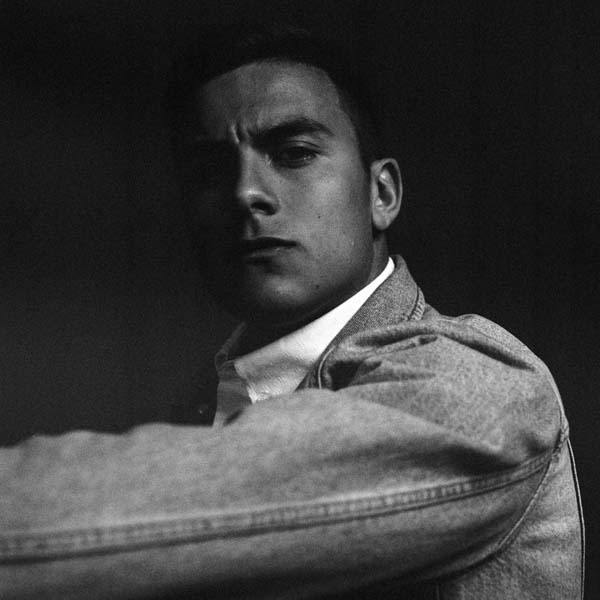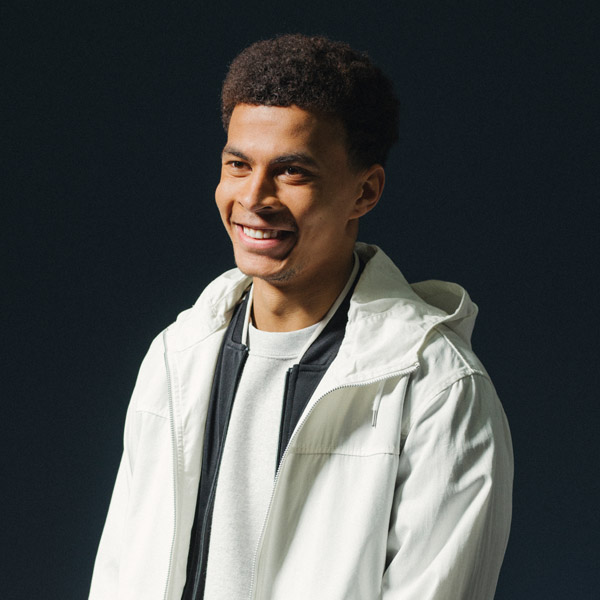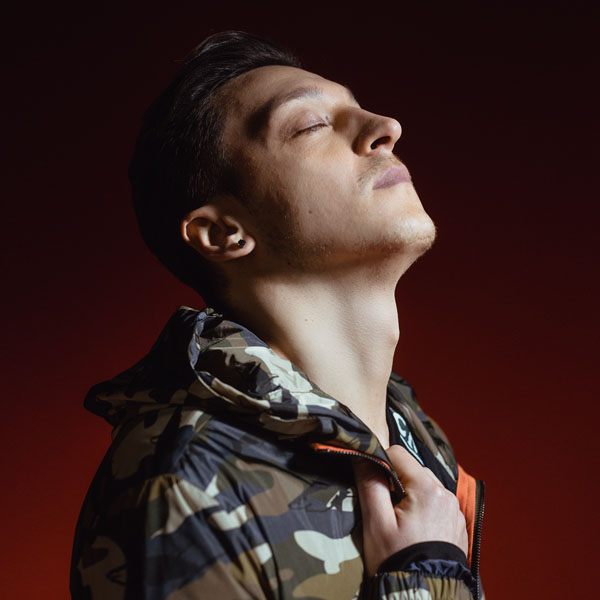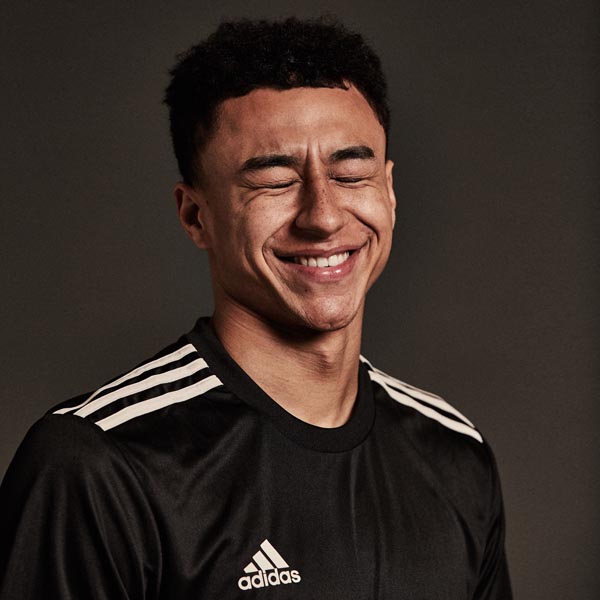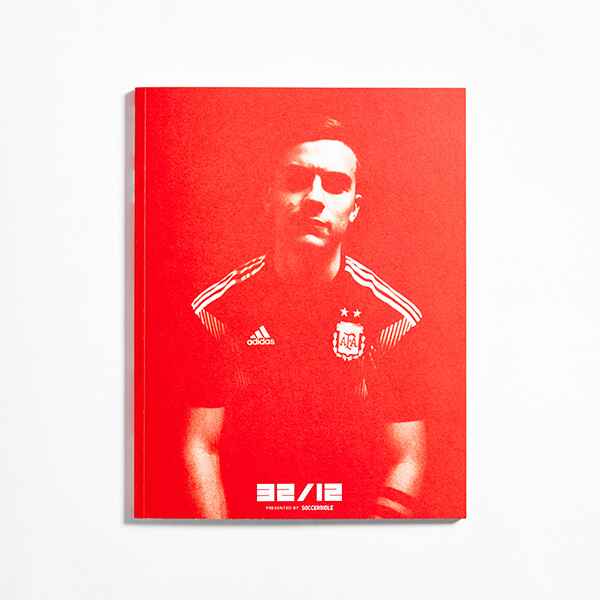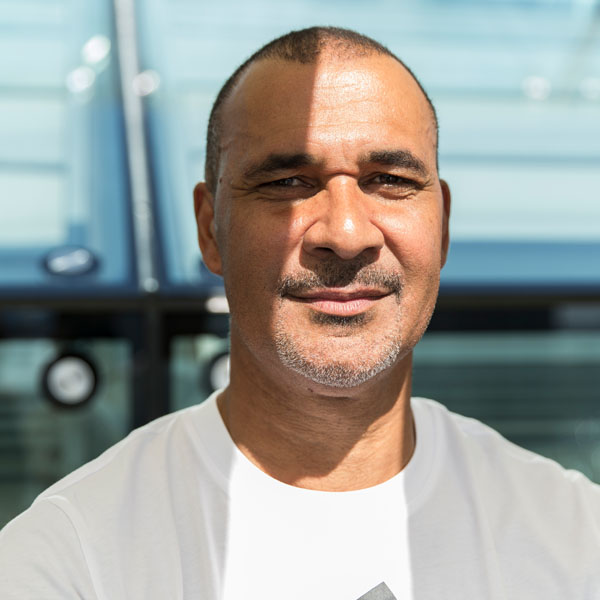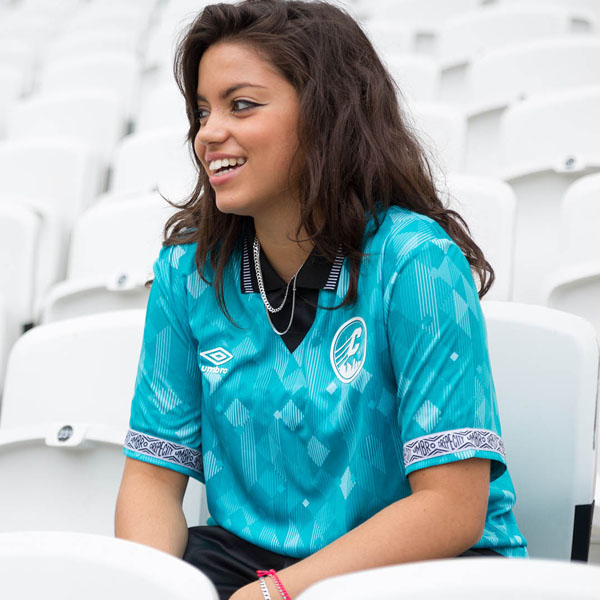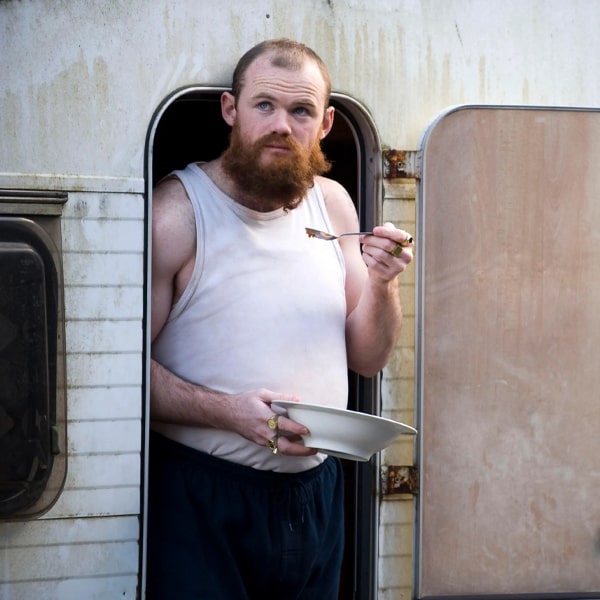Hosting the 2018 FIFA World Cup draw may have been a moment that put Maria Komandnaya at the pinnacle of world football but it was her fascinating career leading up to that moment that made her who she is today. Now a face and mind of Russian football broadcasting, she is a creative entrepreneur and sports journalist with a powerful message. Enjoy this extract from '32/12'...
Can you tell us when you first fell in love with football?
"It was 2002. The World Cup in Korea and Japan. That’s when I watched football for the first time and understood just how big an influence football has over the whole world. I remember walking through my home town during the tournament when Russia were playing and seeing the streets completely empty. This was all because of football. Everyone was watching it. I was about 13 years old then and it made me realise just how powerful the game is all over the world. I started watching football from then on."
What was it like to grow up watching football in Russia?
"I’m from a very sporty family. My dad is big into sports and I don’t think he’s missed a train- ing session since 1992. Every day I remember seeing him go and thinking that his dedica- tion was awesome but I still didn’t really understand why he was doing it. Now I understand that feeling and that connection to a sport. For me it all comes down to football and the love of it. I remember at home, the only channel we used to watch was the sports channel, so falling in love with football was the only option. Now I’m the one who loves football most."
Tell us what it was like to aspire to be a journalist from a young age? Is it a typical dream for someone growing up in Russia?
"When I was younger, none of my friends were really football fans and so I didn’t have any- one to discuss the games with. When I was about 14, I decided I wanted to be a sports jour- nalist. I remember telling one of my friends that I wanted to be a commentator and she told me I was crazy. I called her a few years later and asked if she remembered that conversation. She did. I was very determined to get here."
"I always wanted to be a journalist. In 2010, I went to my first Olympics and it reminded me of all the girls who were better than me at sports when we were kids. They all wanted to get to the Olympics and now it was me who was there. Obviously not competing, but it was a huge achievement for me. Since then, hosting the World Cup draw, that was something my family couldn’t quite understand. As soon as they saw it air though, they got it, they knew just how enormous it was."
What was it like having to prove that you had what it takes to succeed in a ruthless industry?
"When I started, I remember seeing a lot of people looking at me, almost questioning me, “What is she doing here?” But I just worked hard. My dad always told me that really, in life, the only person you can count on is yourself. So if you do your job properly and play fair then everything will be fine. I still very much believe in that. Because I was one of the first female football journalists in Russia, I needed to go for it with all I had."
"I know that a lot of colleagues, athletes and people in the industry didn’t really know what I was doing in that position but I count myself lucky because after working as a broadcaster at Match TV for a year and a half, I approached a radio station and explained that I wanted to make a documentary about the women’s side of football. I feel like we, as women, know football and we love football. I think in life it’s important that you do something you love. It’s also important to share that love with people. When you do that, you have a chance to be someone."
"That radio show lasted about a year and a half and was called ‘What Women Want’ and then we transformed it into a TV show. Around that time, I was achieving a lot but also getting a lot of negative comments on social media that kind of made out I had only got to where I had because of rich parents. That’s definitely not true. I’ve learnt that if you put everything into achieving something, there will always be people trying to knock you down. Now, I’ve learnt how to handle that. I’m ok with that and stronger for it."
You’ve got yourself into a position as a role model for people wanting to follow a simi- lar path. What does that feel like?
"Comparing to where I am now to where I was. I can’t believe what’s happened in my life. I’ve been very lucky but it’s been a long road. I’m 29 now but I started as an intern when I was 17. I can remember so many little battles you have to face that help you get to where you want to go. Things like standing in -20 degree cold, far away from Moscow, asking a player about the game they were just in: I’d tell my friends about that and they couldn’t understand why I would put myself through it. But I understand that hard work and I see how it pays off now."
"I’ve never thought about myself becoming a role model or anything like that. I just wanted to prove to myself that if you devote yourself to something you can achieve a lot.. When I was on stage with Gary Lineker doing the World Cup draw, I saw all those people around us and I had a moment of realisation. Being on stage in front of all these icons, I felt like I had reached a goal then."
"After that, I’ve had so many girls reach out to me and tell me that I’ve inspired them. A lot of people will say, “I want to be a successful woman, I want to be a sports journalist.” Now I realise how important that is. At the same time, I also think the term “role model”, is over- used. I want to inspire people who believe in me. If you dream about something and put the maximum you can into it, if you really want it, then you will get there and make it happen. That’s my main message."
Maria Komandnaya speaks exclusively as part of the SoccerBible World Cup Special Magazine '32/12'. You can pick up a copy for the full interview here.
